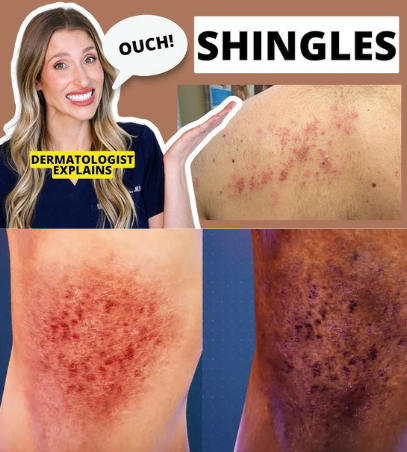
What Is Atopic Dermatitis?
Atopic dermatitis, often called eczema, is a chronic skin condition that makes your skin itchy, inflamed, and sensitive. It’s more than just “dry skin”—it’s an immune system reaction that causes flare-ups and long-term discomfort. While it often begins in childhood, many people continue to deal with it into adulthood. Atopic dermatitis isn’t contagious, but it can deeply affect daily comfort, confidence, and quality of life.
Why Does Atopic Dermatitis Happen?
The exact cause isn’t fully understood, but it’s linked to a mix of genetic, environmental, and immune factors. Here are the main triggers:
- Genetics – If allergies, asthma, or eczema run in your family, your risk is higher.
- Immune system imbalance – The body overreacts to irritants, leading to inflammation.
- Defective skin barrier – A weakened barrier allows moisture to escape and irritants to enter.
- Environmental triggers – Pollen, dust mites, mold, and pet dander can spark flare-ups.
- Lifestyle factors – Harsh soaps, hot showers, stress, or even sweating can worsen symptoms.
- Climate – Dry, cold weather often makes eczema worse.
Think of your skin like a shield—if it’s cracked or weak, irritants easily slip through, and the immune system responds aggressively.
Recognizing Symptoms of Atopic Dermatitis
Symptoms vary from person to person, but common signs include:
- Dry, scaly, or thickened skin.
- Intense itching, especially at night.
- Red or dark patches on hands, feet, elbows, knees, neck, or face.
- Oozing or crusting during flare-ups.
- Sensitive, swollen skin from repeated scratching.
Children often get patches on the face, scalp, and cheeks, while adults usually experience it on hands, eyelids, and skin folds.
How Atopic Dermatitis Affects Daily Life
Living with eczema isn’t just about skin irritation—it impacts sleep, focus, and self-esteem. Constant itching can keep you awake at night, while visible patches may cause embarrassment in social situations. The stress of flare-ups can also create a cycle—stress makes eczema worse, and eczema makes stress worse.
Video : Eczema (Atopic Dermatitis) | Atopic Triad, Triggers, Who gets it, Why does it happen, & Treatment
Potential Complications of Atopic Dermatitis
Ignoring eczema can lead to complications:
- Skin infections – Repeated scratching breaks the skin, allowing bacteria and viruses in.
- Asthma and hay fever – Many people with eczema also develop these allergic conditions.
- Chronic itching – Thickened, leathery skin develops from long-term scratching.
- Emotional stress – Anxiety, depression, or low confidence may arise in severe cases.
Diagnosis: How Doctors Confirm It
Dermatologists usually diagnose eczema by examining your skin and asking about family history. There’s no single test, but patch testing may help identify allergens that trigger flare-ups.
Treatment Options for Atopic Dermatitis
Although there’s no cure, eczema can be managed effectively. Treatments focus on reducing symptoms, preventing flare-ups, and repairing the skin barrier:
- Moisturizers – Regular use of thick creams or ointments helps lock in moisture.
- Topical corticosteroids – Reduce inflammation and itching during flare-ups.
- Calcineurin inhibitors – Non-steroid creams that control immune response.
- Antihistamines – Ease itching, especially at night.
- Antibiotics or antivirals – Treat infections if they occur.
- Phototherapy – Controlled exposure to UV light for severe cases.
- Biologic treatments – Advanced medicines that target immune system pathways.
Consistency is key—skincare routines and lifestyle adjustments make a big difference.
Home Remedies and Lifestyle Adjustments
Alongside medical treatments, daily habits help control symptoms:
- Use mild, fragrance-free soaps and detergents.
- Take lukewarm showers and moisturize immediately afterward.
- Wear breathable cotton clothing to avoid irritation.
- Keep nails short to reduce skin damage from scratching.
- Apply cool compresses to calm itching.
- Manage stress through yoga, meditation, or hobbies.
Prevention: Reducing Flare-Ups
Prevention is about identifying and avoiding triggers:
- Keep indoor humidity balanced to prevent dry air.
- Track food and environmental triggers.
- Avoid harsh chemicals and strong fragrances.
- Stay hydrated and eat a nutrient-rich diet for skin health.
When to See a Doctor
If itching is severe, over-the-counter treatments aren’t helping, or your skin is painful and infected, seek medical care. Dermatologists can provide stronger medications and tailor a plan for your condition.
Video : Atopic Eczema
Conclusion: Managing Eczema for a Better Life
Atopic dermatitis can be frustrating, but it doesn’t have to control your life. With the right mix of medical care, skincare routines, and lifestyle changes, flare-ups can be reduced and managed. The key is understanding your triggers, protecting your skin barrier, and seeking help when needed. Healthy skin isn’t just about appearance—it’s about comfort, confidence, and peace of mind.


